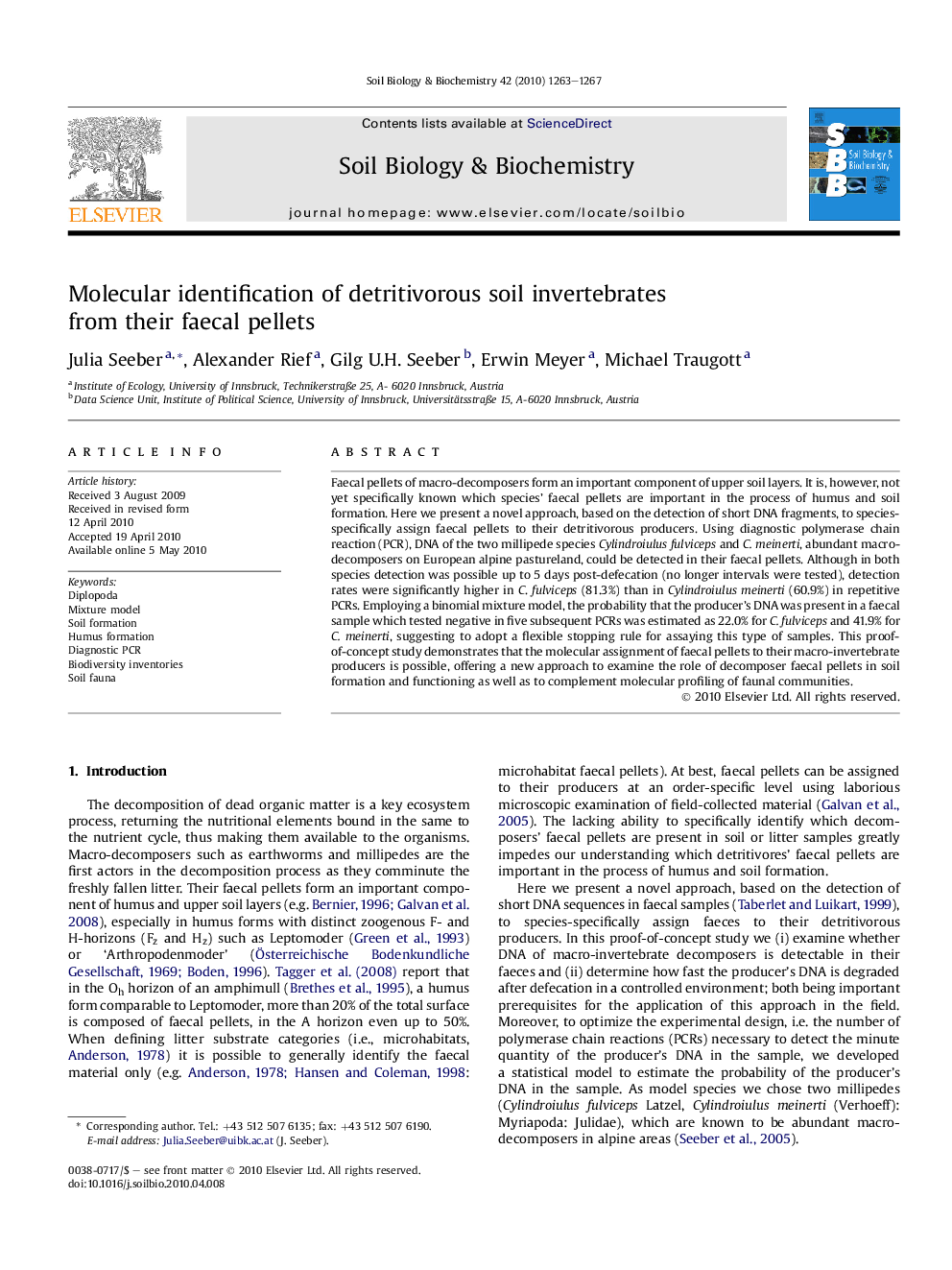| Article ID | Journal | Published Year | Pages | File Type |
|---|---|---|---|---|
| 2026096 | Soil Biology and Biochemistry | 2010 | 5 Pages |
Faecal pellets of macro-decomposers form an important component of upper soil layers. It is, however, not yet specifically known which species’ faecal pellets are important in the process of humus and soil formation. Here we present a novel approach, based on the detection of short DNA fragments, to species-specifically assign faecal pellets to their detritivorous producers. Using diagnostic polymerase chain reaction (PCR), DNA of the two millipede species Cylindroiulus fulviceps and C. meinerti, abundant macro-decomposers on European alpine pastureland, could be detected in their faecal pellets. Although in both species detection was possible up to 5 days post-defecation (no longer intervals were tested), detection rates were significantly higher in C. fulviceps (81.3%) than in Cylindroiulus meinerti (60.9%) in repetitive PCRs. Employing a binomial mixture model, the probability that the producer’s DNA was present in a faecal sample which tested negative in five subsequent PCRs was estimated as 22.0% for C. fulviceps and 41.9% for C. meinerti, suggesting to adopt a flexible stopping rule for assaying this type of samples. This proof-of-concept study demonstrates that the molecular assignment of faecal pellets to their macro-invertebrate producers is possible, offering a new approach to examine the role of decomposer faecal pellets in soil formation and functioning as well as to complement molecular profiling of faunal communities.
